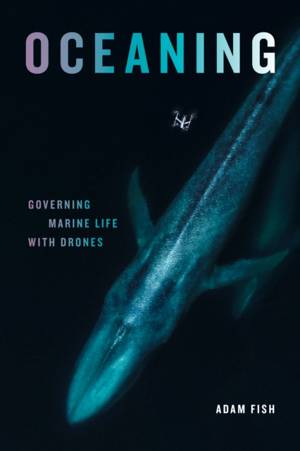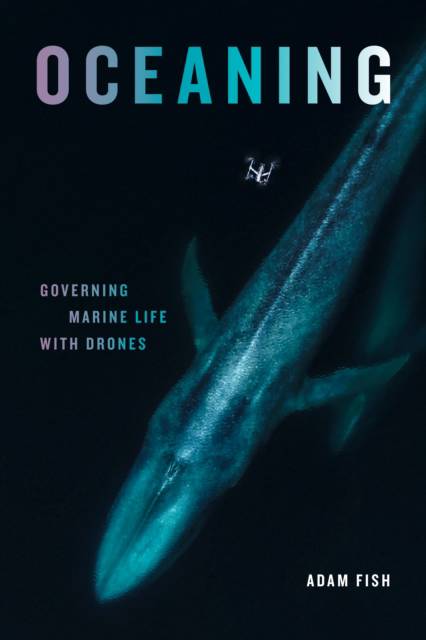
- Afhalen na 1 uur in een winkel met voorraad
- Gratis thuislevering in België vanaf € 30
- Ruim aanbod met 7 miljoen producten
- Afhalen na 1 uur in een winkel met voorraad
- Gratis thuislevering in België vanaf € 30
- Ruim aanbod met 7 miljoen producten
Zoeken
Omschrijving
Drones are revolutionizing ocean conservation. By flying closer and seeing more, drones enhance intimate contact between ocean scientists and activists and marine life. In the process, new dependencies between nature, technology, and humans emerge, and a paradox becomes apparent: Can we have a wild ocean whose survival is reliant upon technology? In Oceaning, Adam Fish answers this question through eight stories of piloting drones to stop the killing of porpoises, sharks, and seabirds and to check the vitality of whales, seals, turtles, and coral reefs. Drone conservation is not the end of nature. Instead, drone conservation results in an ocean whose flourishing both depends upon and escapes the control of technologies. Faulty technology, oceanic and atmospheric turbulence, political corruption, and the inadequacies of basic science serve to foil governance over nature. Fish contends that what emerges is an ocean/culture--a flourishing ocean that is distinct from but exists alongside humanity.
Specificaties
Betrokkenen
- Auteur(s):
- Uitgeverij:
Inhoud
- Aantal bladzijden:
- 248
- Taal:
- Engels
- Reeks:
Eigenschappen
- Productcode (EAN):
- 9781478025801
- Verschijningsdatum:
- 23/02/2024
- Uitvoering:
- Hardcover
- Formaat:
- Genaaid
- Afmetingen:
- 152 mm x 229 mm
- Gewicht:
- 503 g

Alleen bij Standaard Boekhandel
+ 331 punten op je klantenkaart van Standaard Boekhandel
Beoordelingen
We publiceren alleen reviews die voldoen aan de voorwaarden voor reviews. Bekijk onze voorwaarden voor reviews.











